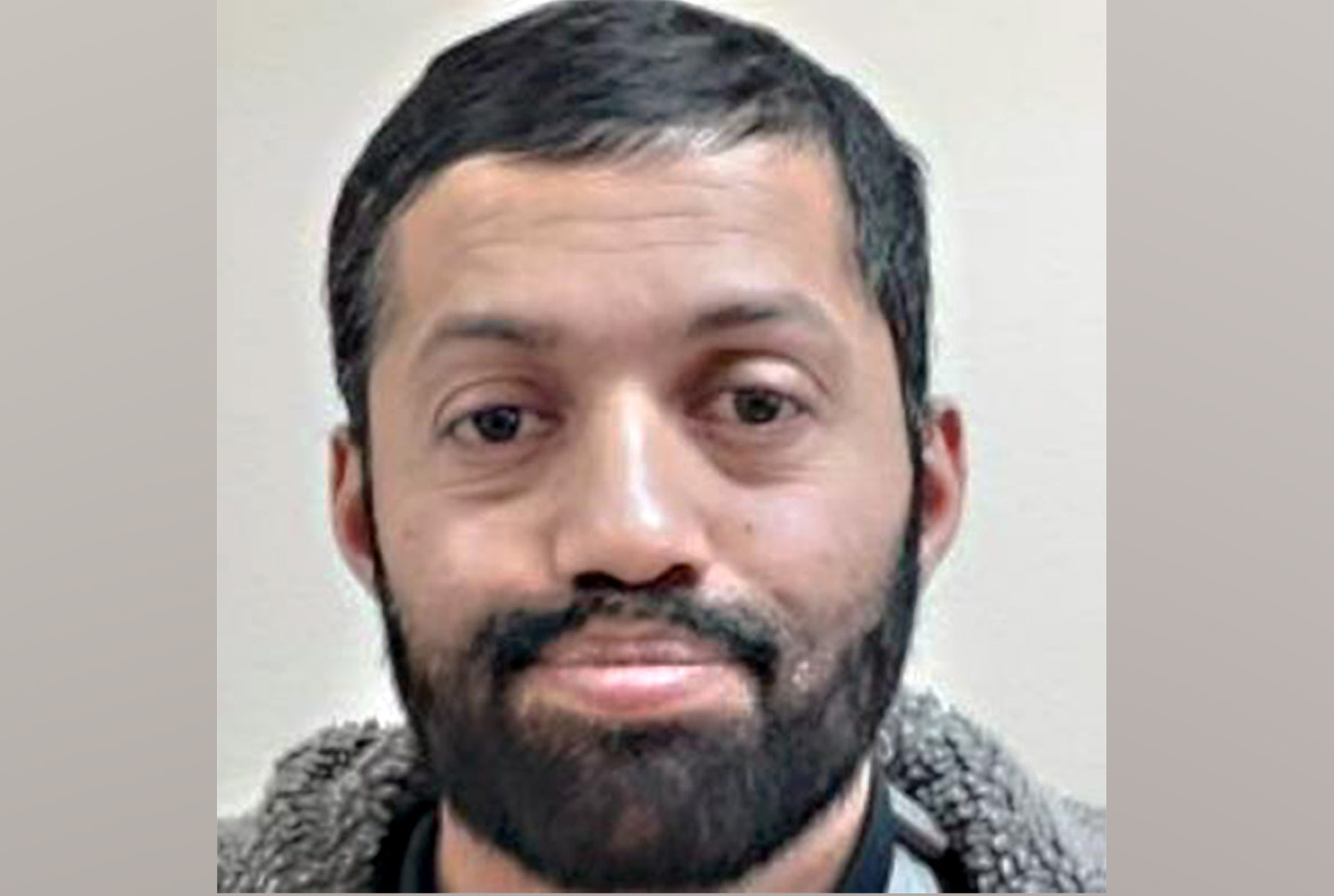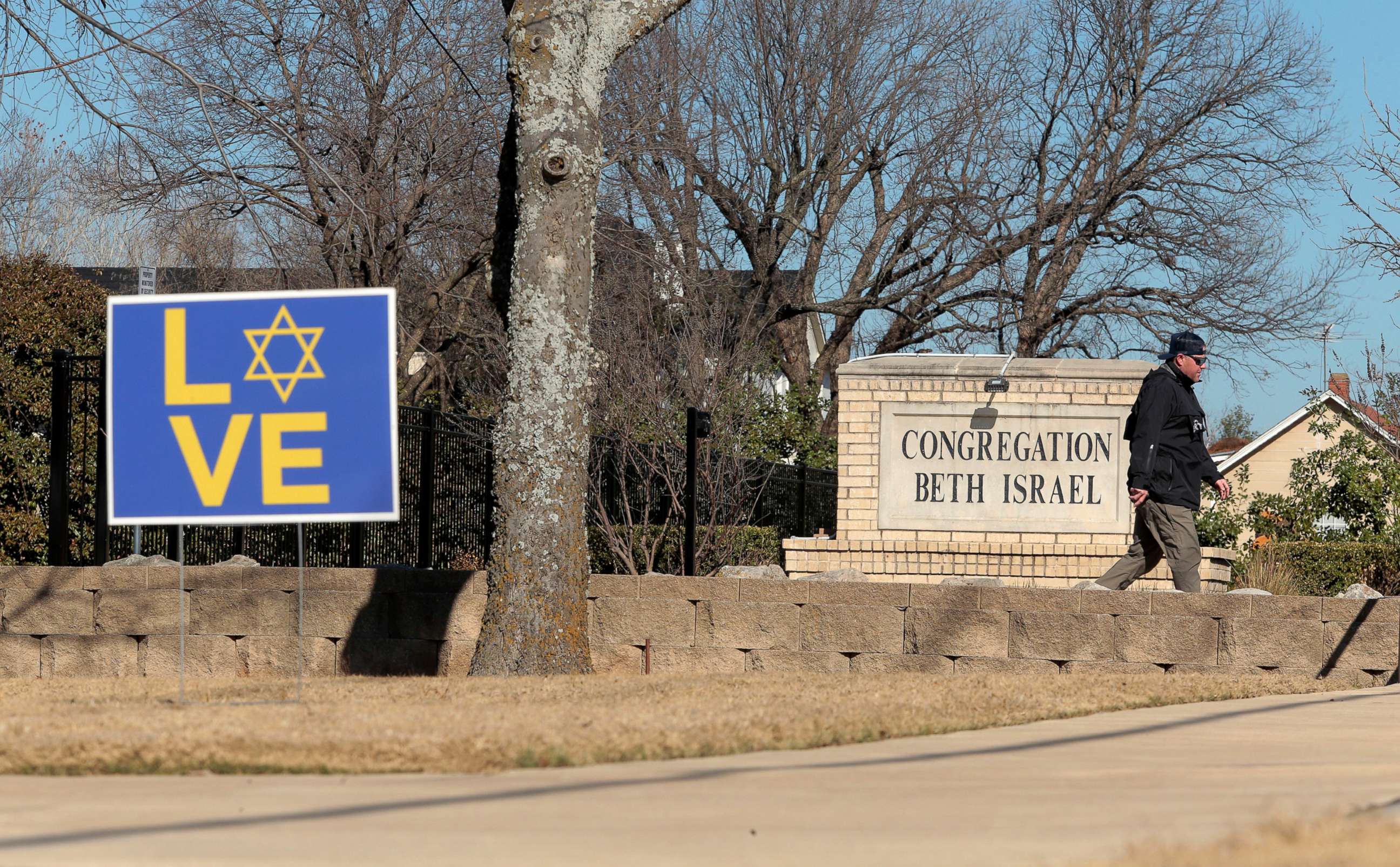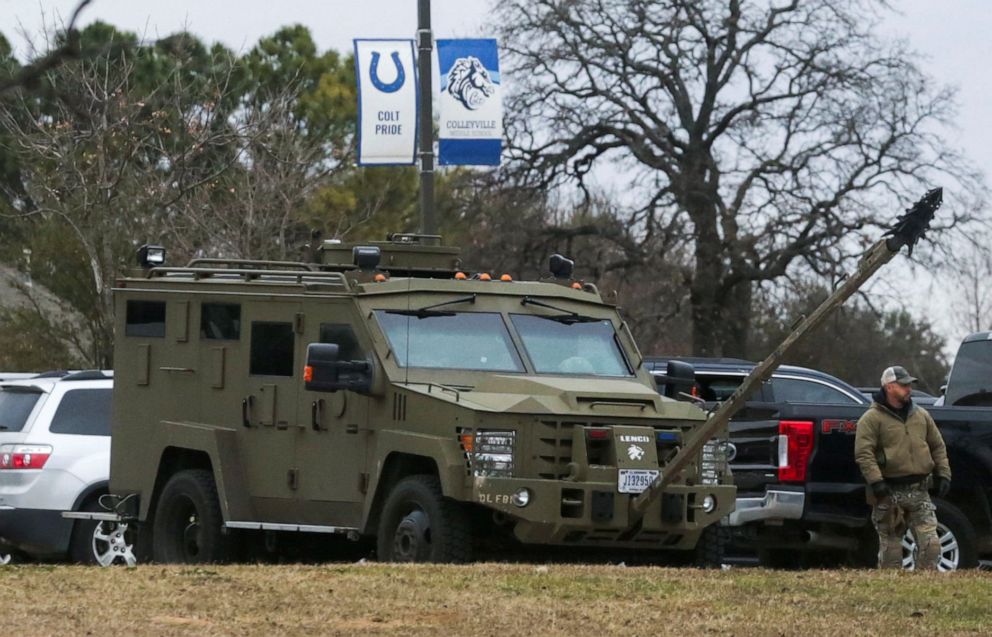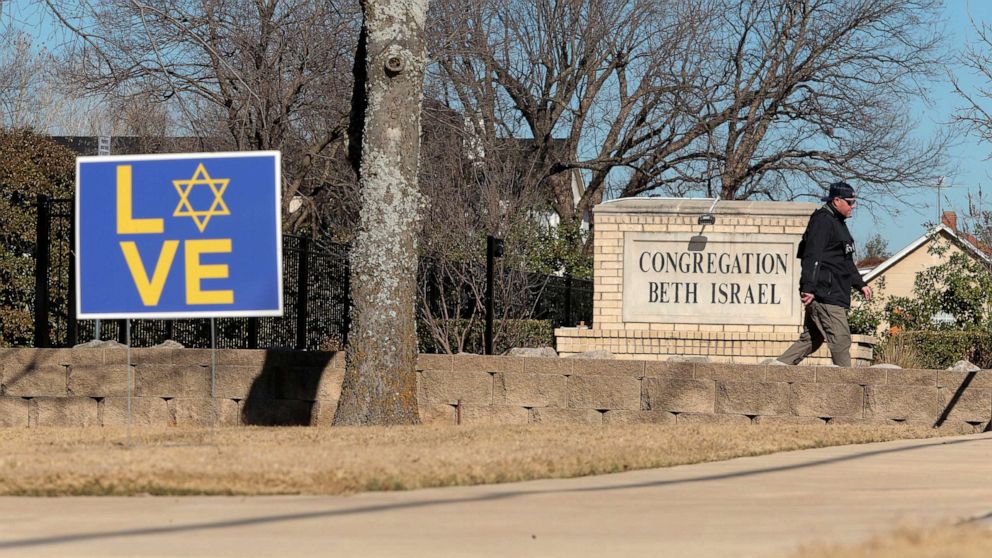Timeline of synagogue hostage standoff sheds light on suspect's travel in US
The British national who allegedly took a rabbi and three other people as hostages inside a Texas synagogue on Saturday arrived in the United States last month and gave customs agents a hotel in New York as his local address, multiple law enforcement sources told ABC News on Monday.
The suspect, Malik Faisal Akram, 44, reportedly took a flight from London to John F. Kennedy International Airport in New York on Dec. 29 and listed a hotel in Queens, New York, as his local address on a customs form, the sources said.
The FBI is investigating whether Akram actually stayed at the hotel prior to traveling by air to the Dallas-Fort Worth area possibly on Dec. 31.

As investigators piece together Akram’s movements in the United States, they’ve determined he bought the handgun used in the hostage-taking on the street from someone he met at a local homeless shelter in Texas, according to the law enforcement sources. The last time the gun was legally sold through a federally licensed dealer was in September 2019, they said.
While in New York, Akram -- who was shot dead by an FBI hostage rescue team, ending a nearly 11-hour standoff with authorities in Texas -- also obtained a cellphone, which he apparently used up until his death, the sources told ABC News.
Suspect was not on any watch lists
Akram's name did not appear on any U.S. watch lists.
Investigators are now working to develop a complete timeline of his movements since his arrival in New York. According to the sources, Akram stayed at homeless shelters for about a week and may have portrayed himself as experiencing homelessness to gain access to the Texas synagogue during Shabbat services.
As part of the investigation, authorities are looking into Akram’s mental health history and are working to determine whether any potential history should have come up during the vetting process for his travel to the United States.
Sources told ABC News that American and British authorities have made contact with Akram’s brother, who told them Akram has mental health issues.

A friend of Akram's family, told the Associated Press on Monday that it was known in their community of Blackburn, England, that Akram had "mental health issues."
"He had mental health issues, which were not really diagnosed," the family friend, Asif Mahmud, told the AP.
Mahmud, a community organizer in Blackburn, also said that Akram had previously served a custodial sentence in England and questioned how he got past U.S. immigration checks.
"Well, I do know he obviously served a custodial sentence, so it must have been serious enough for him to serve a custodial sentence. So, he was known to the authorities for that reason," Mahmud said without elaborating on what offense Akram had been sentenced for. "But for all intents and purposes, other than that, he lived what one would describe a normal kind of existence. He was part of the community."
Two teenagers have been arrested in England as part of an ongoing investigation into the hostage-taking incident, British authorities said. The pair were detained in southern Manchester on Sunday evening and "remain in custody for questioning," according to a statement from the Greater Manchester Police. Multiple law enforcement sources in the U.S. told ABC News that the teens are Akram's children.
Suspect called New York rabbi during standoff
At 10:45 a.m. CST on Saturday, police in Colleyville, Texas, received a 911 call reporting that an intruder, later identified as Akram, was aggressively confronting Rabbi Charlie Cytron-Walker at Congregation Beth Israel in Colleyville.
Cytron-Walker said in an interview with CBS News on Monday that Akram knocked at the synagogue’s window and that he invited Akram in for a cup of tea prior to Shabbat services. The rabbi said that during the services, while his back was turned to Akram in prayer, the suspect pulled a gun.
After taking Cytron-Walker and three other members of the synagogue hostage, Akram was heard on a livestreamed video of the service saying he was holding four hostages, claiming to be armed with a gun and explosives, and stating that he was willing to die at the hands of police and that he was not acting on behalf of a foreign terrorist organization.
Facebook eventually interrupted the livestream, but law enforcement officials were able to access the synagogue’s closed-circuit TV system, allowing the FBI to continue to view the unfolding events in real-time, the sources said.
Just after 12 p.m., Akram instructed Cytron-Walker to call New York-based Rabbi Angela Buchdahl of the Central Synagogue in Manhattan. In a series of subsequent calls with Buchdahl, Akram reportedly threatened to kill the four hostages if convicted terrorist and al-Qaida supporter Aafia Siddiqui was not released from prison at Carswell Air Force Base near Fort Worth.
"I can confirm that the gunman reached out to me twice (on Saturday) by phone," Buchdahl wrote in an email to the New York-based Jewish Telegraphic Agency. “We are about to share a note with the congregation just confirming that. Other than that for security reasons I cannot share more."

Investigators are working to determine why Akram chose Buchdahl to speak to, sources told ABC News. Authorities suspect it was because she is the leader of a prominent synagogue in the city where Siddiqui, a Pakistani neuroscientist, was convicted in 2010 of assault and attempted murder of a U.S. soldier and members of a U.S. team sent to interrogate her in 2008. She was sentenced to 86 years in prison.
Siddiqui's attorney, Marwa Elbially, released a statement over the weekend saying Siddiqui did not know Akram and that she condemned his actions.
Elite FBI team flown in to help
As the hostage standoff was unfolding on Saturday, authorities reached out about 12:30 p.m. to the FBI's hostage rescue team at the bureau's headquarters in Quantico, Virginia. The team was immediately dispatched to Colleyville, officials said.
Around 5:30 p.m., Akram released one of the hostages unharmed.
About four hours later, the FBI hostage rescue team entered the synagogue after Cytron-Walker and the two other hostages escaped when they bolted for an exit door as the rabbi threw a chair at the suspect.
Akram was shot as the team entered the synagogue and later died from his wounds. A handgun, believed to belong to Akram, was recovered inside the synagogue, sources said.
ABC News' Luke Barr contributed to this report




